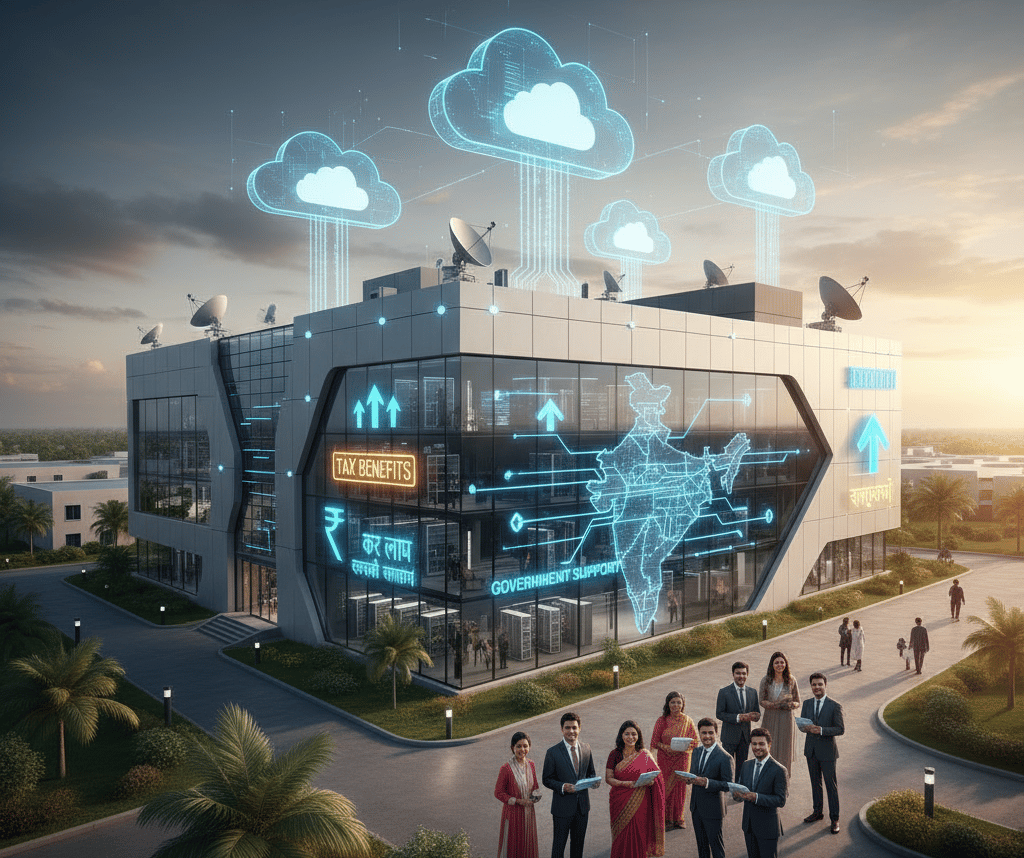Government Proposes 20-Year Tax Holiday for Data Centers
To promote investment and expansion, the Indian government intends to provide data centers with a tax exemption for up to 20 years. If the data centers achieve their targets for capacity expansion, energy conservation, and job creation, this break will be accessible. They can also receive GST credits on equipment purchases thanks to the policy. The government wants to give property close to industrial districts, create more data centers in both large and small cities, and guarantee a sufficient supply of electricity. This action will use greener energy, create jobs, and support India's cloud computing, AI, and digital services sectors.
MARKET NEWS
9/19/20252 min read


In order to stimulate the data center industry through long-term benefits, the Indian government is putting up a substantial tax policy. Data center developers can receive up to 20 years of tax exemption under the draft National Data Center Policy, provided they satisfy specific goals for employment creation, energy efficiency, and capacity expansion. In light of the growing demand for computing power and storage, this tax break is intended to encourage significant investments and infrastructure development in the industry, establishing India as a global center for cloud infrastructure, artificial intelligence services, and digital data storage.
The policy's main characteristics include input tax credits (ITC) on the Goods and Services Tax (GST) on capital assets such building supplies, air conditioning and heating systems, and electrical installations used in data centers. These credits help developers save money on capital expenditures. In order to promote international involvement, the policy also recommends giving permanent establishment status to foreign businesses who run or lease significant data center capacity in India.
In addition to tax holidays and credits, the policy introduces regulatory and infrastructure reforms, including single-window clearances, data center-specific economic zones in both metropolitan and smaller cities, land subsidies, standard building codes, and recognition of infrastructure status for improved power access. In order to promote ecosystem growth, these initiatives combine fiscal and non-fiscal incentives to standardize data center development under a national framework.
Since 2019, the data center industry in India has grown at a compound annual growth rate of almost 24%, and by 2027, it is predicted to have added close to 795 megawatts (MW) of additional capacity. In addition to encouraging sustainable energy use in these energy-intensive facilities, the tax exemption and associated policy incentives are thought to be essential for maintaining this growth, drawing in investment, and increasing employment.
Because data centers have a large economic impact, high capital requirements, and the ability to create jobs, governments around the world are offering tax incentives and subsidies to entice investment. This policy is in line with these developments. Sales tax exemptions, property tax abatements, depreciation benefits, and energy efficiency deductions are examples of comparable incentives found throughout the world.
